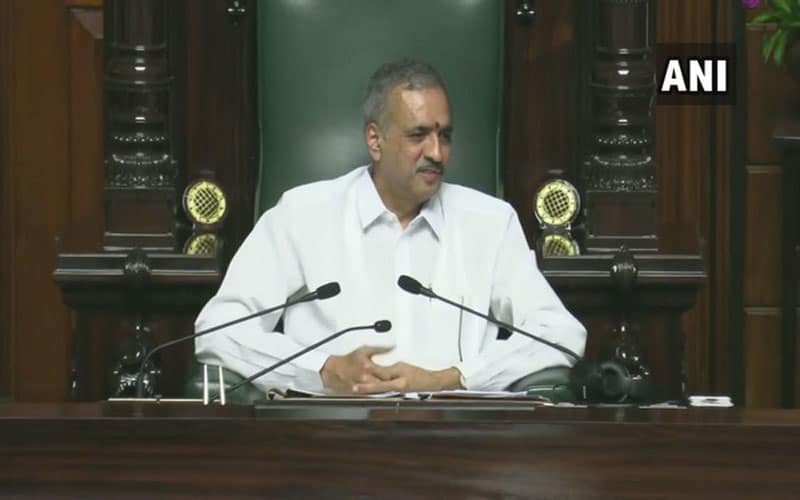Bengaluru: Ahead of the three-day winter session of the Karnataka Assembly from Thursday, Speaker Vishweshwar Hegde Kageri here on Wednesday banned national and regional private television channels from covering proceedings live.
“State-run Doordarshan’s Kannada channel Chandana will provide the video feed of the Assembly proceedings to the private news channels,” an official of the Speaker’s office told IANS here.
“As decided by the Speaker, private news channels can also take feed from Doordarshan for live coverage of proceedings as they do in the case of Parliament,” said the official.
Television news reporters, however, will be allowed to cover the session as print and other media journalists, but cannot carry cameras inside.
“All news channels at the national level take feed from the Lok Sabha TV and the Rajya Sabha TV for live or deferred coverage of the parliamentary proceedings. The same will be followed from Thursday in Karnataka,” said the official.
According senior Congress MLA and ex-Speaker K.R. Ramesh Kumar, private TV channels were allowed to cover the proceedings over the last two decades since they came into being. Till their arrival on the scene, Doordarshan was the only channel recording the sessions.
“I allowed a few private news channels to cover the proceedings live or recording for their audience when I was the Speaker in the mid-1990s,” Kumar recalled.
Terming Kageri’s decision as anti-democratic, Kumar said private broadcasters were allowed to cover proceedings for wider audience and greater reach of the legislators. “Eternal vigilance is the price of democracy. The people who elect us to the Assembly or council have right to know what we are doing in the session,” Kumar said.
It’s not the first time that private TV channels have been banned from covering live the Legislative Assembly and the Legislative Council session or recording them for deferred telecast.
A similar ban was imposed in 2012 by the BJP government after its present Deputy Chief Minister Laxman Savadi was caught on camera allegedly watching porn on his mobile phone during the session, forcing him to quit after vociferous protests by the Congress and the Janata Dal-Secular members.
The ban was, however, lifted amid protests by the media.

